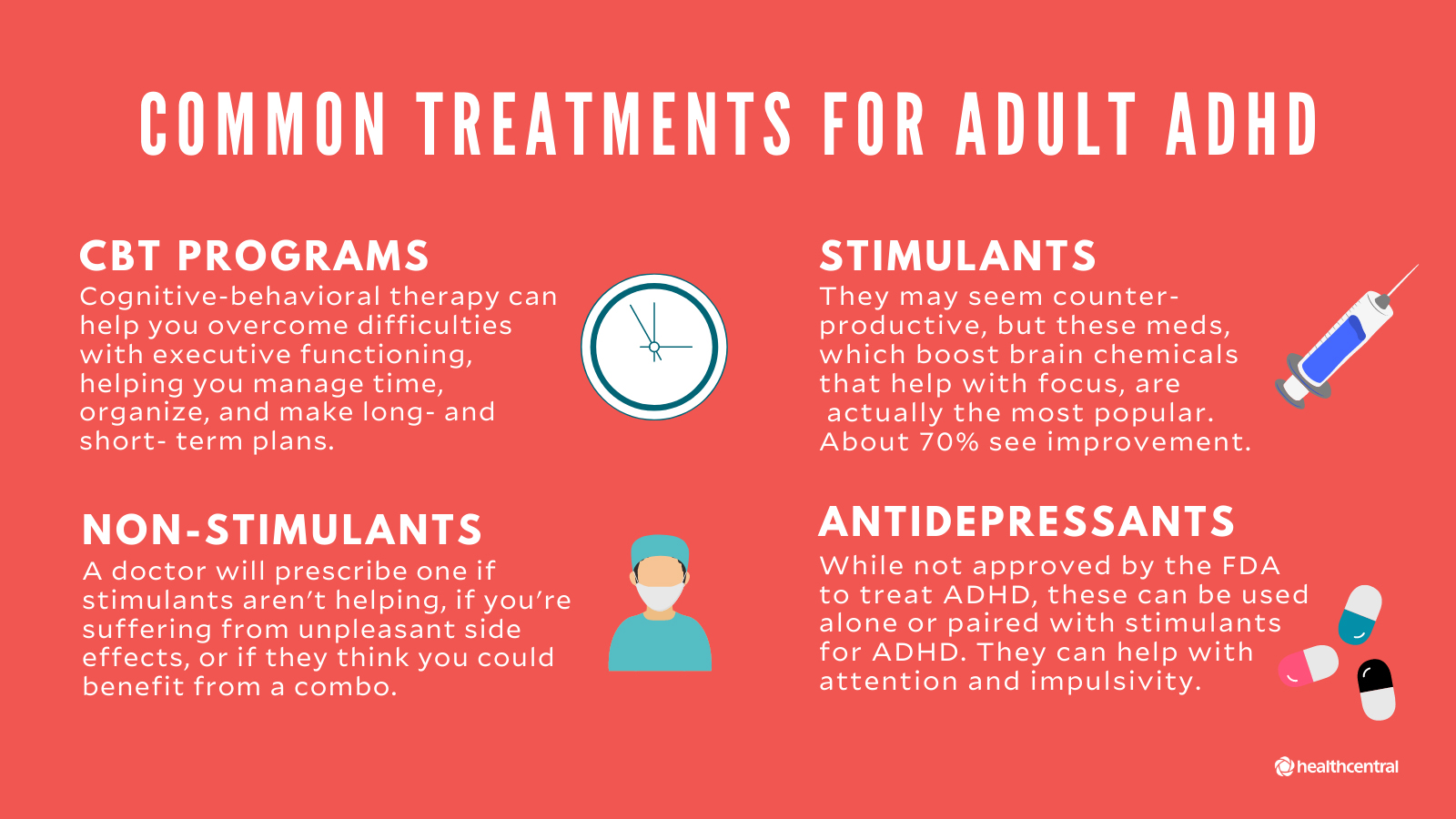Your Overview to Finding the Right ADHD Therapy for Long-term Results
Navigating the complexities of ADHD therapy requires a nuanced understanding of both the condition and the myriad choices offered for efficient administration. It is necessary to identify that what jobs for one individual may not necessarily yield the exact same outcomes for one more.
Understanding ADHD and Its Effect

In adults, ADHD can result in challenges in office settings, impacting productivity, time administration, and interpersonal relationships. Commonly, undiagnosed or poorly managed ADHD can contribute to co-occurring psychological wellness concerns, such as anxiousness and depression, more complicating an individual's overall health.
The societal perception of ADHD can differ, resulting in stigma and misconception, which might hinder individuals from looking for assistance. As understanding grows, it is vital to cultivate a setting that advertises understanding and assistance for those affected by ADHD, stressing the need for accurate medical diagnosis and tailored methods to alleviate its effect on everyday life.
Summary of Treatment Choices
An extensive strategy to dealing with ADHD encompasses a variety of choices customized to the person's unique needs. These alternatives can generally be categorized into behavioral interventions, psychoeducation, and way of living alterations, along with pharmacological therapies that might be checked out later on.
Behavioral interventions, such as cognitive-behavioral treatment (CBT), focus on modifying particular behaviors and creating coping techniques to manage signs and symptoms effectively. Psychoeducation plays an important duty in empowering both individuals and their family members by offering details concerning ADHD, its difficulties, and effective methods for support.
Lifestyle adjustments can considerably impact ADHD management. Routine exercise, a well balanced diet regimen, and appropriate rest add to total well-being and sign control. Mindfulness practices and leisure methods can likewise improve emphasis and minimize impulsivity.
Support system and family members treatment can promote a sense of neighborhood and understanding, helping individuals feel much less isolated in their experiences. Each therapy option ought to be thought about together with the individual's choices and circumstances, guaranteeing an all natural strategy that promotes long-lasting success. Inevitably, the goal is to produce a tailored treatment plan that deals with the certain challenges connected with ADHD while boosting overall lifestyle.
Drug: Benefits And Drawbacks
Medicine plays a pivotal duty in the treatment of ADHD, with numerous options available that can dramatically reduce symptoms for several individuals. Stimulants, such as methylphenidate and amphetamines, are commonly recommended and have actually revealed performance in improving focus, decreasing impulsivity, and boosting general actions. These drugs work by raising dopamine and norepinephrine degrees in the mind, which are frequently dysregulated in those with ADHD.
Nonetheless, making use of drug is not without its challenges. Some people might experience side results, consisting of sleeping disorders, decreased cravings, or increased stress and anxiety. In addition, discovering the appropriate dose can be a trial-and-error procedure, calling for close tracking by healthcare experts. Furthermore, not all people respond to energizer medications, leading some to explore non-stimulant choices, which may have a delayed beginning of action or various adverse effects.
It is vital for individuals and their families to evaluate these advantages and disadvantages meticulously. Stabilizing the benefits of signs and symptom monitoring versus possible side effects is essential for achieving optimum therapy results. Collaboration with health care providers can help with enlightened decisions, ensuring find out here now that drug is part of a detailed ADHD management strategy.
Behavior Therapy Strategies

One generally employed method is Cognitive Behavior modification (CBT), which assists individuals recognize and change negative thought patterns that add to ADHD-related challenges. Therapist description for ADHD. With CBT, clients find out to set practical goals, manage time properly, and develop business systems
Another reliable technique is Parent Monitoring Training (PMT), which educates moms and dads on just how to enhance positive behaviors and decrease negative ones via regular technique and communication methods. This strategy promotes an encouraging home setting that motivates behavior improvements.
Social abilities training is likewise essential, aiding individuals with ADHD navigate social interactions better. Role-playing and modeling suitable actions can enhance social proficiency and reduce anxiousness in social scenarios.
Way Of Life Changes for Better Monitoring
Just how can way of life modifications dramatically improve the management of ADHD symptoms? Executing tactical way of life alterations can bring about significant improvements in emphasis, company, and psychological guideline for people with ADHD.
First of all, developing an organized day-to-day regimen helps in creating predictability, which can minimize feelings of overwhelm. Consistent routines for meals, study, and sleep can improve day-to-day performance.
Including routine exercise is additionally essential, as exercise has been shown to increase dopamine levels, enhancing attention and inspiration (Therapist for ADHD). Intending for at the very least half an hour of modest exercise most days types of antidepressants can be useful
Nutrition plays a crucial function. A well balanced diet plan abundant in omega-3 fatty acids, entire grains, and protein can support cognitive function. Restricting refined sugars and caffeine might lower signs and symptoms, as these can lead to power crashes and impatience.
Conclusion
To conclude, finding the appropriate ADHD treatment necessitates a complex approach that considers specific needs and choices. A combination of medication, behavior modification, and lifestyle adjustments can considerably enhance symptom management and total health. Participating in psychoeducation and developing structured regimens additionally supports effective therapy strategies. Cooperation with health care specialists and open communication with support networks are vital elements in browsing the intricacies of ADHD monitoring, eventually leading to long-term results and improved lifestyle.